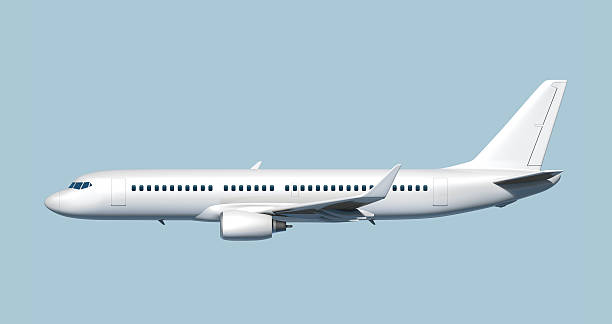As Nigeria marks its 64th year of independence, the nation reflects not only on its political and economic journey but also on the progress of vital sectors like aviation, which has played a crucial role in connecting the country to the world. From its humble beginnings to its current standing as one of Africa’s busiest aviation hubs, the evolution of Nigeria’s aviation industry has been a remarkable story of resilience, growth, and potential. As the country continues to aim for global relevance, the industry stands as a beacon of progress, offering opportunities for economic development, job creation, and international partnerships.
A Glimpse Into History: The Birth of Nigeria’s Aviation Sector
The roots of Nigeria’s aviation industry can be traced back to 1925 when the first aircraft, a Royal Air Force (RAF) plane, landed in Kano, sparking curiosity and excitement across the nation. However, it was not until the early 1950s that commercial aviation began to take shape with the establishment of Nigerian Airways in 1958. As Nigeria’s first national carrier, Nigerian Airways symbolized national pride and was the first step toward developing a robust aviation infrastructure.
Over the years, the aviation industry expanded, with airports being built in major cities, including Lagos, Abuja, and Port Harcourt. Nigeria’s airspace became a vital gateway for both domestic and international travel, connecting the country to the world and facilitating trade, tourism, and cultural exchange.
Despite this growth, Nigeria’s aviation sector has faced its fair share of turbulence. The collapse of Nigerian Airways in 2003, due to mismanagement and financial troubles, left a significant gap in the industry. However, the private sector quickly stepped in, with airlines like Arik Air, Air Peace, and Dana Air emerging to fill the void and offer new hope for the industry’s future.
Growth and Challenges in the Post-Independence Era
Since independence, the Nigerian aviation sector has undergone tremendous transformation, particularly with the rise of privately-owned airlines that have redefined air travel in the country. Over the years, Air Peace, one of the largest domestic airlines, has expanded its fleet and network, providing reliable domestic flights and growing international routes to destinations in West Africa, the Middle East, and beyond. Other airlines like Arik Air and Azman Air have also contributed to expanding connectivity within Nigeria and the African continent.
However, the industry’s growth has not been without challenges. Inadequate infrastructure, inconsistent policies, high operational costs, and safety concerns have historically plagued the industry. Many airlines have struggled with maintaining profitability due to rising fuel costs, limited access to foreign exchange, and regulatory hurdles. Airport facilities, though improving, have long required upgrades to meet international standards and provide the services expected by modern travelers.
Safety, an issue of great concern, has been a significant focus in recent years. Several tragic air accidents in the past left scars on the industry, raising the need for stronger regulatory oversight. The Nigerian Civil Aviation Authority (NCAA) has since implemented stricter safety protocols, helping improve the country’s aviation safety record and rebuilding public confidence in air travel. Additionally, the Federal Government’s efforts to address infrastructural gaps through initiatives like the rehabilitation of major airports and upgrading air traffic control systems are signs of a renewed commitment to the industry’s development.
Nigeria as an Emerging Aviation Hub
Today, Nigeria stands as one of Africa’s most important aviation hubs, thanks to its strategic location, large population, and growing economy. Murtala Muhammed International Airport (MMIA) in Lagos is one of the busiest airports on the continent, serving as a gateway for millions of passengers annually. Nnamdi Azikiwe International Airport in Abuja, as the capital’s main airport, is also a critical node for both domestic and international travel.
Nigeria’s potential to serve as a hub for regional and international flights is immense, given its central position in Africa and proximity to major global markets in Europe, the Middle East, and North America. As the global economy shifts towards increased connectivity, Nigeria’s aviation industry is well-positioned to capitalize on this trend, attracting more airlines and passengers.
In recent years, the Nigerian government has made concerted efforts to modernize the sector. Projects like the expansion of terminals at Lagos and Abuja airports, alongside public-private partnerships to manage airports, have improved infrastructure and services. Plans to launch a new national carrier, Nigeria Air, further signal the government’s intention to establish Nigeria as a leading aviation power in Africa.
The Future: Challenges and Opportunities
As Nigeria looks ahead, the aviation industry remains one of the key sectors poised for exponential growth. With a population exceeding 200 million people, the demand for domestic air travel is expected to increase, presenting opportunities for airlines to expand their services and improve connectivity to remote areas. In addition, Nigeria’s young, tech-savvy population offers potential for innovation in the industry, such as digital ticketing solutions, improved customer service, and enhanced cargo logistics.
However, there are also significant challenges to be addressed. The lack of a comprehensive aviation policy that aligns with global standards continues to hinder industry growth. Additionally, the cost of aviation fuel and maintenance expenses remain high, limiting the ability of local airlines to compete with international carriers. To unlock the full potential of Nigeria’s aviation sector, a long-term strategy that addresses infrastructure gaps, enhances safety, and attracts foreign investment is critical.
One of the most promising opportunities for Nigeria’s aviation industry lies in the African Continental Free Trade Area (AfCFTA), which aims to promote trade across Africa. Nigeria’s aviation industry can play a pivotal role in facilitating trade and movement across the continent, offering a competitive advantage as a transportation hub for goods and services.
A Call to Soar Higher
As Nigeria celebrates its 64th Independence Day, the aviation industry stands as a testament to the nation’s ambition and resilience. From the early days of Nigerian Airways to the modern era of private airlines, the industry has evolved significantly, adapting to challenges and capitalizing on opportunities. Today, Nigeria’s aviation sector is flying higher, with the potential to become a global leader in air travel, connecting the nation and the continent to the rest of the world.
The road ahead is filled with promise. By addressing the sector’s challenges and fostering an enabling environment for growth, Nigeria can build an aviation industry that is not only a source of national pride but also a vital engine for economic development. As the country celebrates its independence, the aviation sector reminds us of Nigeria’s ability to overcome obstacles and soar to new heights.
Happy Independence Day, Nigeria! May the nation’s aviation industry continue to rise, just as the green and white flag flies high.








